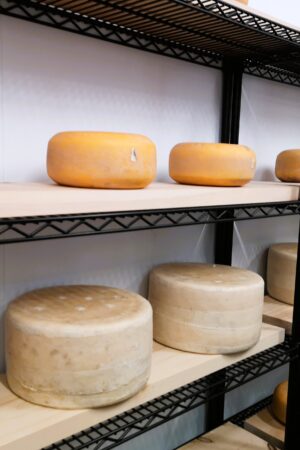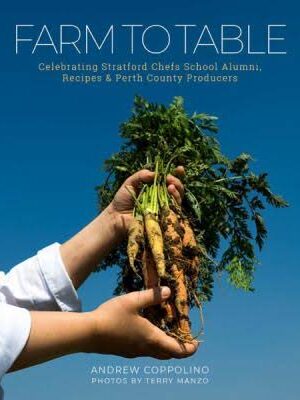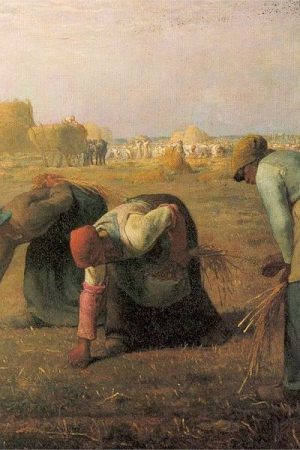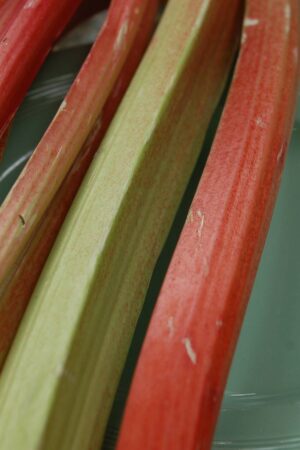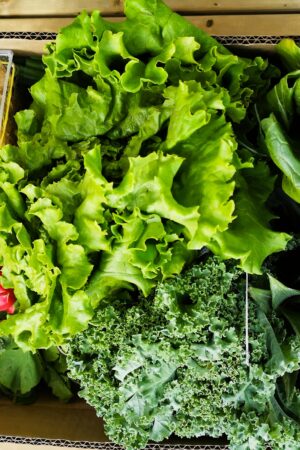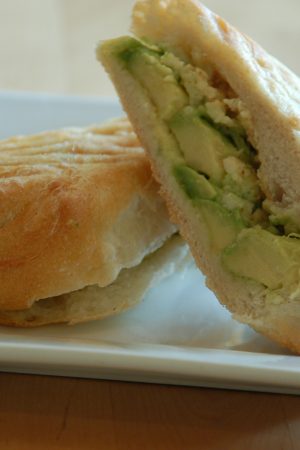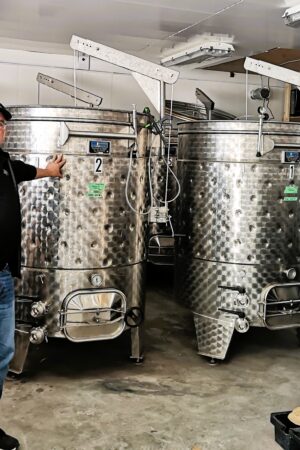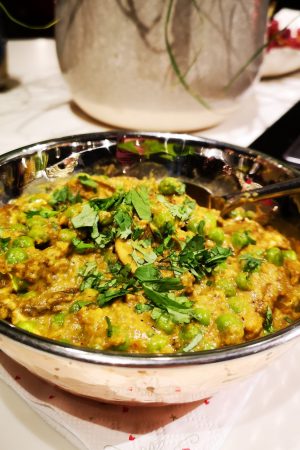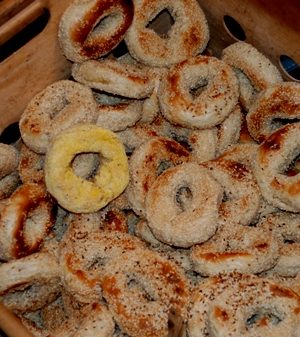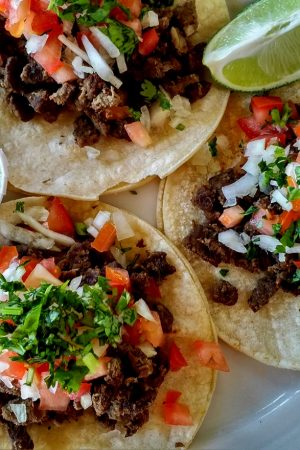Gen Z farmhands work Jardin Boulay Garden
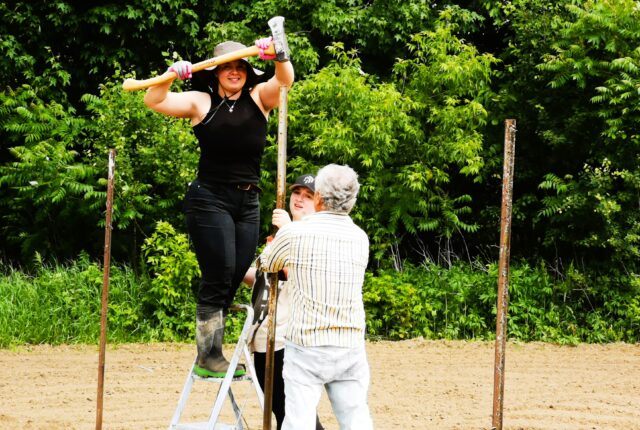
Amid the 100 acres of farm in Saint-Pascal-Baylon, a few minutes outside Rockland, I see and hear a group of farmhands pounding stakes into the ground for a trellis system on which will grow cucamelons.
Also, known as “mouse melons,” the grape-sized fruits look like tiny, cute watermelons and are one of dozens of crops growing at Jardin Boulay Garden, owned by Mary Lynn Boulay.
The work of pounding the stakes is certainly not cute in the blasting sun of the day, however. Atop the ladder, Olivia Romeo wields a heavy maul with sister Sophia Romeo and Jardin Boulay Garden co-farmer Stephane Berube – Boulay’s husband – holding the ladder steady.
What is perhaps unique about the Romeo sisters, who live a only a country-lane or two away from the farm, is that they love the work of farming, though they have real no real interest in becoming farmers: Olivia, 21, is a university psychology student, while Sophia, 22, works at an area grocery store.
Young farm hands working the land
The pair, who have worked the farm for several years, simply love tending to the fields and crops and helping grow food that the community eats. I admire their work ethic in the blasting sun and humidity.
“I like working hard. It’s rewarding,” Olivia says, with Sophia agreeing. “And at the stand selling, there’s the social aspect and getting to see different people from the community. It’s good relationships.”
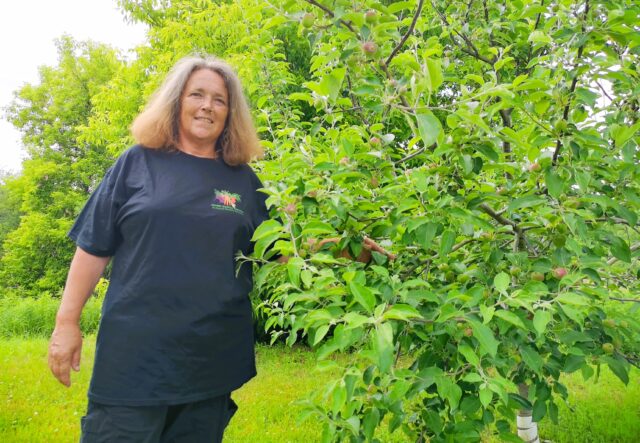
With small family farms being consolidated into larger corporate entities and with fewer kids wanting to take over the family business of agriculture, it’s encouraging to see young people like the Romeos – essentially Gen Zs – caring about how their food grows and where it comes from.
For her part, Boulay stresses the importance of her farmhands for helping the farm tend the fields and sell the resulting produce at their market stand at the corner of Laurier and Giroux streets in downtown Rockland starting again in a couple of weeks.
“They are very good workers. They’re out here working hard and giving it their all. I depend on them,” Boulay says.
The farm grows blueberries, strawberries, raspberries, blackberries, cabbage, Brussels sprouts, cauliflower, broccoli, kale, tomatoes and just started cherries.
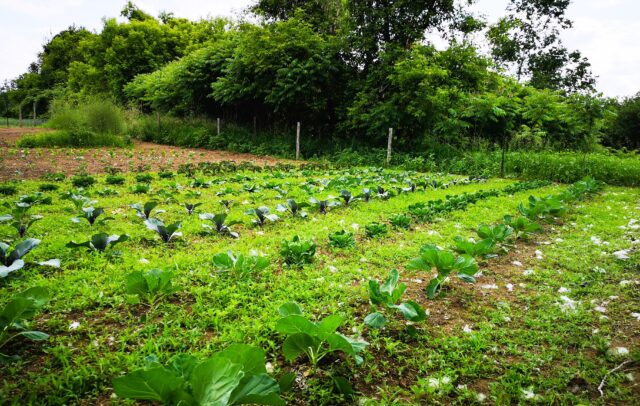
Standing over a field of green spiky leaves, Boulay hands me a fresh garlic scape from a hardneck garlic plant: I snap off a piece and the aroma of garlic released is immediate.
“I’ll be cutting them this weekend,” she says. “All the energy and water then leaves the scapes and goes to the garlic bulbs.”
Near the house, a handful of apple trees will produce the popular Honeycrisp and the venerable McIntosh, among other varieties.
A few metres from the greenhouse, where the season’s crops get their start as tiny sprouts in little plastic trays, is a peach tree with small cucamelon-sized peaches just starting to appear.
“I plant them, water them and transplant them. After that, I have to rely on Mother Nature,” says Boulay.
No farmers means no food
It’s likely that even few customers who shop farmers’ markets and market stands – and know they are buying produce from the farmer – recognize at least somewhat the difficulties and essential hard work in hot conditions that farmers face.
“Most people when they come up to the stand, you know, don’t really know everything that’s gone into what vegetables or fruits we’ve grown,” says Boulay.
Her message, therefore, is a very simple one: support farmers because without them there would be no food …
For more, visit Andre Paquette Editions.




